




(PP) Polypropylene Filter Bags
Key Features
Engineered for reliability in critical industrial applications.
Material Excellence: Premium-grade polypropylene construction delivering superior filtration efficiency and durability.
Temperature Performance: Operating range: -20°C to 90°C with consistent filtration efficiency.
Chemical Compatibility: Superior resistance to acids, alkalis, solvents, and industrial chemicals.
Mechanical Integrity
- Five-line sewn seams: Maximum durability
- Thermal-welded joints: Superior sealing
- Reinforced ring attachment
Surface Engineering
- Progressive density design
- Multi-layer construction
- Uniform pore distribution
- Optimized flow patterns
Technical Specifications
| Model | Diameter (inch) | Length (inch) | Volume (L) | Precision (Mesh) | Max Flow Rate (m³/h) | Filtration Area (m²) | Material Options | Bag Size Options | Micron Rating | Ring or Flange Style | |||||||||||||||||||||||||||||||||||||||||||||||||||||||
|---|---|---|---|---|---|---|---|---|---|---|---|---|---|---|---|---|---|---|---|---|---|---|---|---|---|---|---|---|---|---|---|---|---|---|---|---|---|---|---|---|---|---|---|---|---|---|---|---|---|---|---|---|---|---|---|---|---|---|---|---|---|---|---|---|---|
| Size #1 | 7.09 | 16.93 | 8 | 0.1、0.5、1、5、10、25、50、100、150、200、300、500 | 20 | 0.25 | NMO, PEM, POM | Standard Sizes | Varied | Multiple Choices | |||||||||||||||||||||||||||||||||||||||||||||||||||||||
| Size #2 | 7.09 | 31.89 | 17 | 0.1、0.5、1、5、10、25、50、100、150、200、300、500 | 40 | 0.5 | NMO, PEM, POM | Standard Sizes | Varied | Multiple Choices | |||||||||||||||||||||||||||||||||||||||||||||||||||||||
| Size #3 | 4.13 | 9.06 | 1.3 | 0.1、0.5、1、5、10、25、50、100、150、200、300、500 | 6 | 0.09 | NMO, PEM, POM | Standard Sizes | Varied | Multiple Choices | |||||||||||||||||||||||||||||||||||||||||||||||||||||||
| Size #4 | 4.13 | 14.96 | 2.5 | 0.1、0.5、1、5、10、25、50、100、150、200、300、500 | 12 | 0.16 | NMO, PEM, POM | Standard Sizes | Varied | Multiple Choices | |||||||||||||||||||||||||||||||||||||||||||||||||||||||
| Size #5 | 5.91 | 21.65 | 7 | 0.1、0.5、1、5、10、25、50、100、150、200、300、500 | 18 | 0.3 | NMO, PEM, POM | Standard Sizes | Varied | Multiple Choices | |||||||||||||||||||||||||||||||||||||||||||||||||||||||
Need Custom Polypropylene Filter Bags?
We offer tailored solutions and engineered samples.
Industrial Liquid Filtration Solutions
High-Performance Polypropylene Filter Bags for Critical Process Applications
- Filtration range: 0.1μm to 500μm
- Temperature tolerance: -20°C to 90°C (140°F)
- Maximum flow rate: 40m³/h (#2 size bag)
- Dirt holding capacity: 2x standard filter bags
- Filter area: up to 0.5m² (#2 size bag)
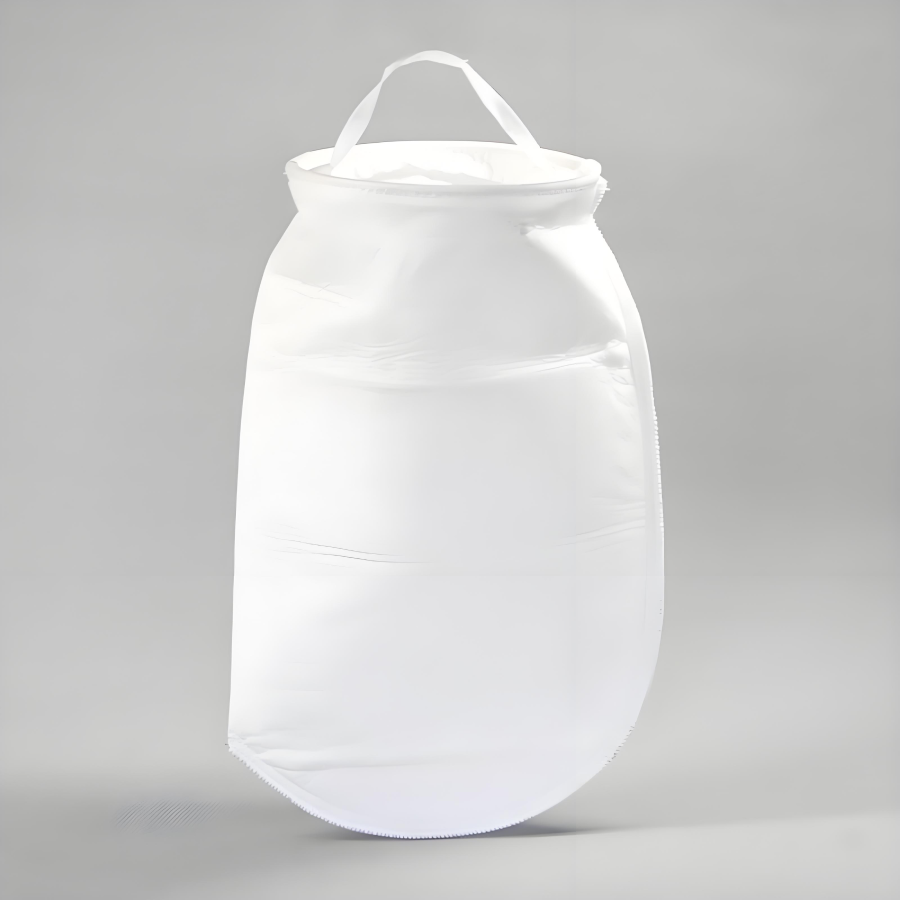
- FDA-compliant polypropylene construction
- ISO 9001 certified manufacturing process
- Dual sealing options:
- Multi-layer depth filtration matrix
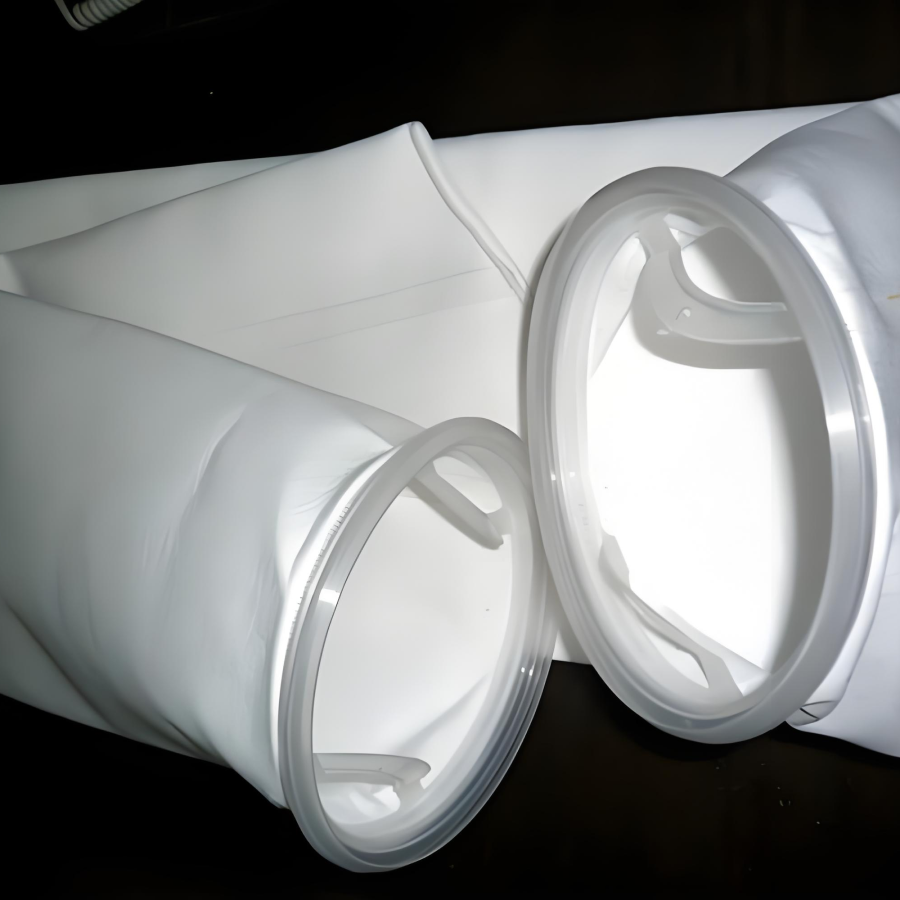
- 5 standardized sizes (#1-#5)
- Volume capacity: 1.3L to 17L
- Retention efficiency: 99.9% at rated micron
- Operating pressure: up to 6 bar
- Chemical resistance: pH 1-14
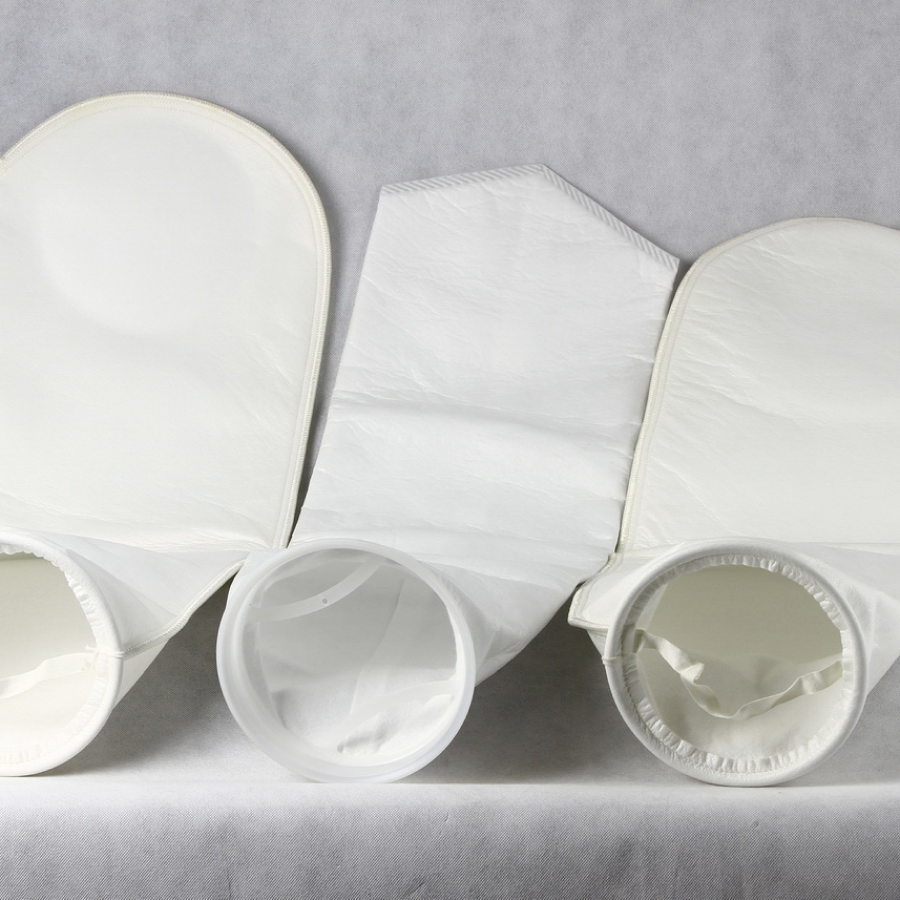
- Water treatment systems
- Chemical processing
- Food & beverage production
- Automotive fluids
- Industrial coatings
- Electronic manufacturing
- Oil & gas processing
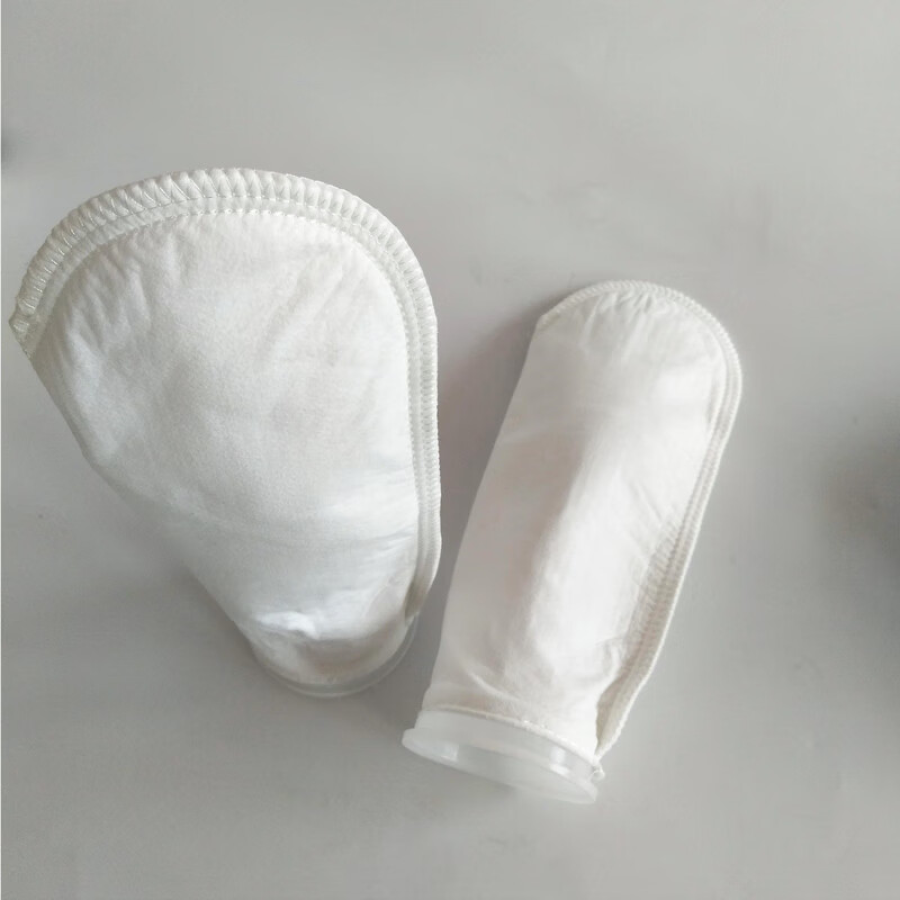
- 100% integrity tested
- Batch traceability
- Third-party certified materials
- Production date coding
- Individual serial numbering
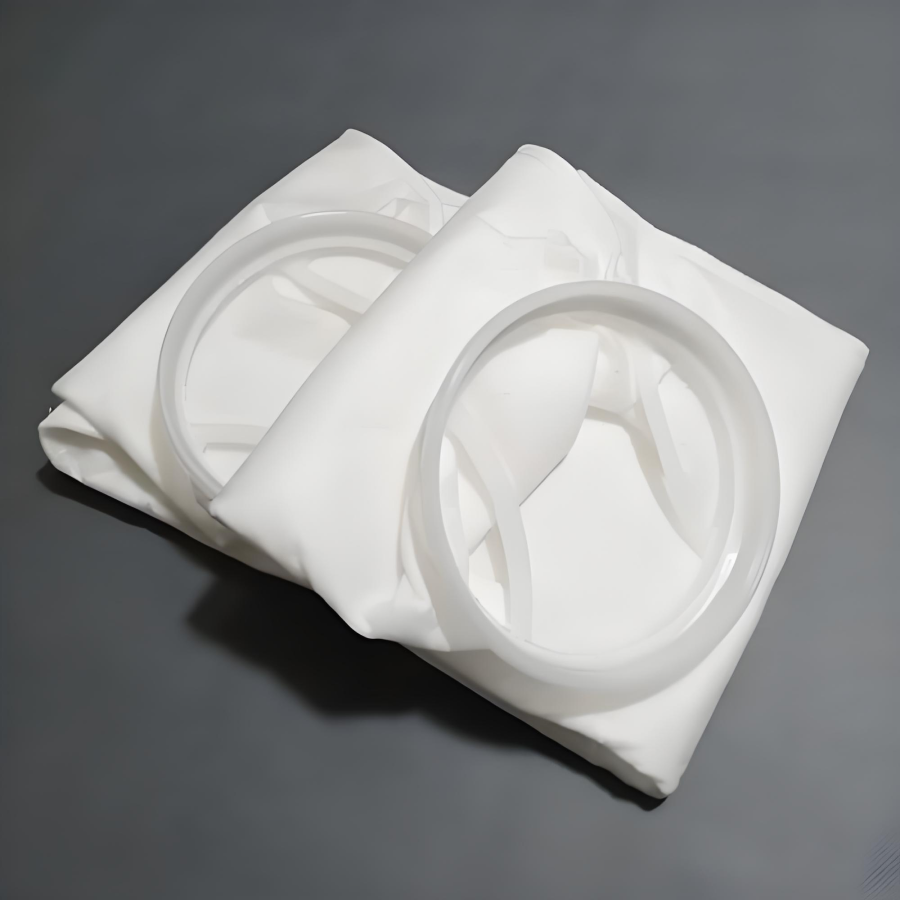
Industry Applications
Reliable Liquid Filtration Solutions
FAQs
What sizes of filter bags do you offer?
A: We offer five standard sizes (#1-#5) with varying dimensions and capacities, ranging from 1.3L (#3) to 17L (#2). Detailed dimensions are available in our product specification sheet. We can also accommodate custom sizes for specific applications.
What filtration ratings (micron ratings) are available?
A: Our filter bags are available in a wide range of micron ratings from 0.1μm to 500μm (specifically: 0.1, 0.5, 1, 5, 10, 25, 50, 100, 150, 200, 300, and 500μm) to meet diverse filtration requirements.
What's the difference between "micron" and "mesh" ratings?
Micron ratings refer to the pore size of the filter media in micrometers (μm). Mesh ratings refer to the number of openings per linear inch in a woven mesh. We primarily use micron ratings for our PP, PE, and Teflo bags. Our stainless steel filter bags are typically specified by mesh size. We can provide a conversion chart upon request.
What is the maximum operating temperature for each material?
Operating temperature varies by material:
- Polypropylene (PP): -20°C to 90°C (140°F)
- Teflo (PTFE): Up to 260°C (500°F)
- Nylon and Polyester: Please inquire about specific temperature limits.
What are the typical flow rates for your filter bags?
Flow rates depend on bag size, micron rating, and the fluid being filtered. Our #2 bag (17L capacity) can handle up to 40m³/h. Contact us for flow rate information for other sizes and applications.
What is the dirt holding capacity of your filter bags?
Our filter bags are designed for high dirt holding capacity, typically exceeding standard filter bags by a factor of two, leading to longer service life and reduced change-out frequency.
Can you provide examples of specific applications for your filter bags?
Our filter bags are used in a wide range of applications, including:
- Water Treatment: Municipal water pre-filtration, wastewater treatment, RO pre-filtration.
- Chemical Processing: Filtration of acids, alkalis, solvents, and other chemicals.
- Food & Beverage: Beverage clarification, edible oil filtration, ingredient processing.
- Industrial Manufacturing: Paint and coatings filtration, parts washing, metalworking fluids.
- Pharmaceutical & Biotech: Sterile filtration, bioprocessing.
What ring and closure options are available?
We offer both plastic and stainless steel rings for compatibility with various filter housings. Our bag closures include 5-line reinforced stitching for maximum durability and heat-sealing for enhanced sealing performance.
What is the difference between stitched and heat-sealed seams?
Stitched seams (5-line reinforced) provide exceptional strength and durability. Heat-sealed seams offer a completely sealed closure, minimizing the risk of bypass and ensuring higher filtration efficiency for critical applications.
Do you offer custom filter bag solutions?
Yes, we specialize in custom solutions, especially for filter press cloths and dust collection bags. Contact us to discuss your specific requirements.
How do I select the right filter bag for my application?
Our technical experts can help you choose the optimal filter bag based on your specific needs. Key factors to consider include:
- Fluid being filtered (chemical composition, temperature, viscosity)
- Required filtration level (micron rating)
- Flow rate requirements
- Filter housing type and dimensions
- Budget considerations
How can I contact you for technical support or to request a quote?
You can reach us by phone at 0086-18367694455, email at teflofilter@gmail.com, or visit our website at teflofilter.com. We're ready to assist you with all your filtration needs.
What are the advantages of your filter bags compared to other materials like cellulose, polyester, or Nomex?
Our PP, Teflo, Nylon, and Polyester filter bags offer distinct advantages depending on the material. PP provides excellent cost-effectiveness and broad chemical compatibility. Teflo delivers unmatched chemical and temperature resistance. Nylon offers good strength and abrasion resistance, while Polyester provides a balance of strength and chemical compatibility.
Compared to cellulose, our synthetic materials offer superior durability and chemical resistance. Compared to Nomex, our materials often provide a more cost-effective solution while still maintaining excellent performance in many applications.
How does the cost-effectiveness of your filter bags compare to other filtration methods?
Our filter bags offer a highly competitive cost per unit and their extended lifespan due to high dirt-holding capacity reduces change-out frequency and labor costs, contributing to overall cost savings. We encourage you to contact us for a detailed cost analysis tailored to your specific application.
How do I choose the right ring/flange type?
The ring/flange type should match your filter housing connection. We offer both plastic and stainless steel rings. Contact us if you're unsure which type is compatible with your system.
What application parameters should I consider when selecting a filter bag?
Key parameters include flow rate, operating temperature, chemical compatibility of the fluid being filtered, and the desired filtration efficiency.
What testing standards are used for your filter bags?
Our filter bags undergo rigorous testing according to industry standards, including ISO 9001 certified manufacturing processes. We perform 100% integrity testing on every bag.
What is your quality inspection process?
We maintain strict quality control throughout the manufacturing process, from raw material inspection to finished product testing. This includes batch traceability, third-party certified materials, production date coding, and individual serial numbering.












